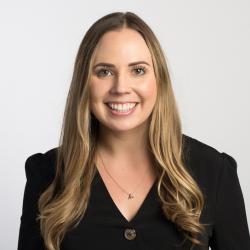The Role of Speech Therapy in Concussion Treatment
March 24, 2019
According to the Center for Disease Control (CDC): A concussion is defined as a type of traumatic brain injury (TBI) caused by a bump, blow or jolt to the head, or from a fall or blow to the body that causes the head and brain to move quickly back and forth.
AtOverlake Outpatient Rehabilitation, we commonly see concussions following motor-vehicle accidents, sports-related injuries, blast injuries and falls.
As a speech-language pathologist (SLP), my role in the management of concussion symptoms includes assessment and intervention for cognitive-communication deficits such as attention, memory, language and executive functioning skills. I also provide extensive education about concussion/mild traumatic brain injury (mTBI) to my patients and assist them in management of their symptoms with return to daily activities (e.g., school and work).
Symptoms of concussion usually fall into four categories:
- Physical: headache, visual changes, nausea/vomiting, dizziness, balance problems, sensitivity to noise/light, and fatigue.
- Emotional/mood: irritability, sadness, more emotional, nervousness/anxiety.
- Sleep: sleeping more/less than usual and trouble falling asleep.
- Cognitive-communication: difficulty thinking clearly, feeling slowed down, difficulty concentrating, difficulty remembering new information.
Most people with a concussion recover quickly and fully. For some people, however, symptoms can last for days, weeks or longer. Those who have had a concussion in the past are also at risk of having another one and may find that it takes longer to recover if they have another concussion.
In the early days after a concussion, education is a crucial part of recovery. Rest is very important because it helps the brain to heal. Ignoring symptoms often makes them worse. Gradually returning to work or school is also recommended, rather than going back full time right away.
Additional SLP evaluation and treatment is recommended for symptoms that last longer than expected. A neurologist may diagnose the patient with post-concussive syndrome (PCS), when symptoms do not resolve completely.
Cognitive-communication therapy for PCS consists of education, assessing cognitive domains (attention, memory, processing speed, language), identifying post-concussion symptoms, and utilizing environmental or behavioral strategies.
Treatment duration and frequency depends on the severity of symptoms and impact on daily activities. Therapy typically starts with weekly sessions and gradually decrease in frequency as symptoms improve.
A multi-disciplinary approach is very important for recovery after a concussion/mTBI. We often collaborate with physicians at theOverlake Neuroscience Institute, psychiatrists, and physical and occupational therapists.

